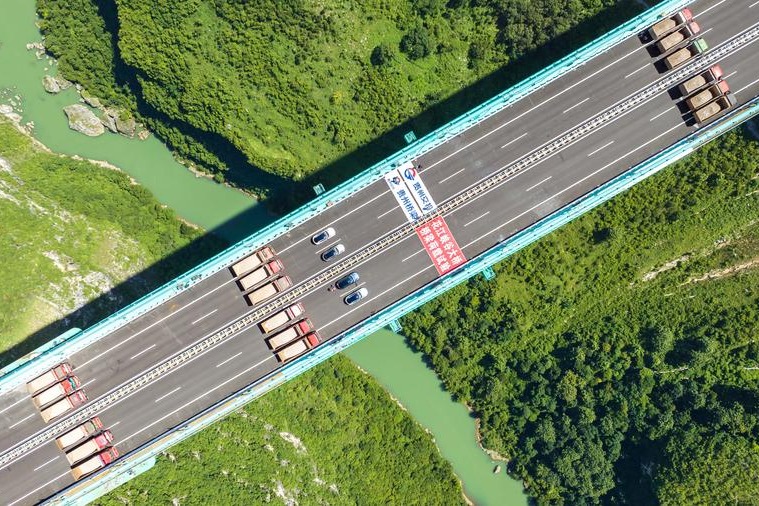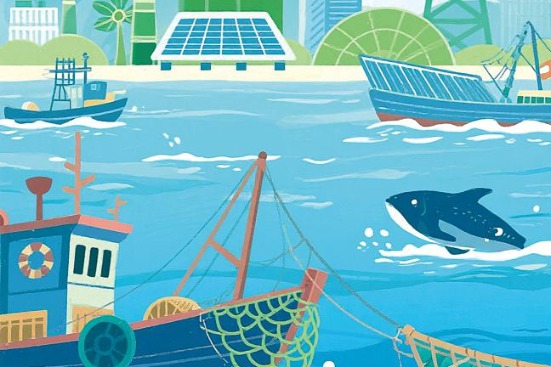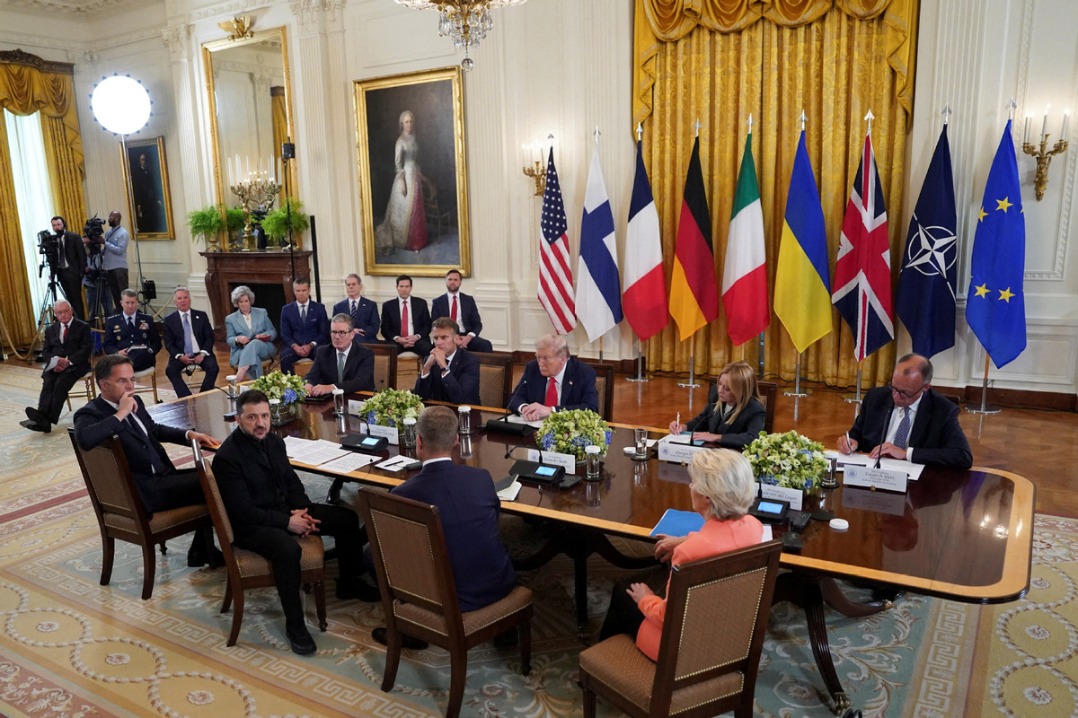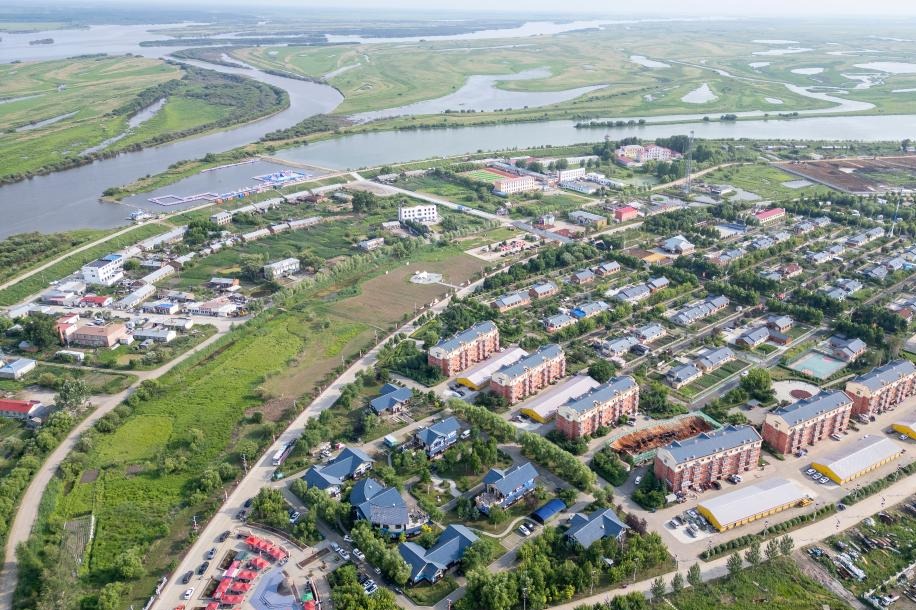World must better protect biodiversity


Governments are meeting at the 15th Conference of the Parties, or COP 15, to the Convention on Biological Diversity, in Montreal, Canada, from Dec 7-19 to agree on new global goals and a 2030 action plan for nature. This deal must set the world on a new course to address alarming biodiversity loss, which is also vital to combating the climate emergency, achieving food and water security, reducing our vulnerability to future pandemics, and achieving the Sustainable Development Goals.
The World Wide Fund for Nature is urging world leaders to secure an ambitious global agreement to save our life support systems at COP 15. Nature is declining at rates unprecedented in history, with 1 million species threatened with extinction. People are becoming increasingly aware of this crisis. New WWF research published this year shows the amount of people concerned about rapid nature loss in the world’s top global biodiversity hotspots has risen to nearly 60 percent — reflecting a 10 percent increase, since 2018. In addition, nature and climate change were seen as the most important policy areas for people (81 percent), across the thousands surveyed.
As humans continue to exploit and destroy nature at an unprecedented scale, we undermine the living systems that our own wellbeing, security and prosperity depend upon. The post-2020 Global Biodiversity Framework needs to be at least as comprehensive, science-based and ambitious as the Paris Agreement on Climate Change. It must deliver immediate action on
the ground to reverse nature loss; however, the current draft framework does not go far enough to address the biodiversity crisis. WWF has identified a number of areas in which the GBF must galvanize transformative action.
All countries must increase ambition and action to deliver a comprehensive and science-based framework that can halt and reverse biodiversity loss by 2030 and achieve a nature-positive future, so that by the end of the decade we have more nature than at its start. The GBF needs to provide a step change from the previous 10-year strategic plan for the CBD — under which none of the 20 so-called Aichi targets were fully met. It was the second consecutive decade that the world failed to meet biodiversity targets. During this time, biodiversity loss has continued, at an increasing rate. Governments must set new ambitious targets for 2030 and be held accountable for meeting them.
COP 15 must result in the agreement of a strong and ambitious GBF that allows parties to begin immediately implementing it by setting up national targets and updating National Biodiversity Strategies and Action Plans in line with the new global framework. This will require the adoption at COP 15 of a package that, at a minimum, includes, in addition to the post-2020 GBF document:
*The monitoring framework including headline indicators
*The enhanced multidimensional approach to planning, monitoring, reporting and review
*The strategy for resource mobilization
*The COP decision which operationalizes the GBF should identify that the immediate and full implementation of the GBF, including through adequate national legislation, is required by parties in order to fulfill their obligations under the convention
*To address our escalating nature crisis and secure a sustainable future for current and future generations, the adopted framework must, at a minimum, contain the following key negotiated policy outcomes:
The WWF will be pressing governments in Montreal to adopt a “Paris”-style agreement capable of driving immediate action to halt and reverse biodiversity loss by 2030 for a nature-positive world. This means having more nature at the end of the decade, than we have now.
To date, more than 90 world leaders have endorsed the Leaders’ Pledge for Nature, committing to reverse biodiversity loss by 2030.
WWF stresses the importance of countries agreeing to a goal of conserving at least 30 percent of the planet’s land, inland waters and oceans by 2030.
At the same time, action is needed to ensure the remaining 70 percent of the planet is sustainably managed and restored – and this means addressing the drivers of biodiversity loss, with the same level of urgency. Science is clear that global production and consumption rates are completely unsustainable and are causing serious damage to the natural systems people rely on for their livelihoods and wellbeing. WWF believes a commitment to half the global footprint of production and consumption by 2030, while recognizing huge inequalities between and within countries, is desperately needed in the framework to ensure that key sectors, such as agriculture and food, fisheries, forestry, extractives and infrastructure, are transformed to help deliver a nature-positive world.
Despite a large and growing number of world leaders committing to secure an ambitious global biodiversity agreement, key issues remain unresolved, including how to mobilize the necessary finance. Currently, the biodiversity finance gap is estimated at $700 billion annually. WWF is encouraged by the Kunming Biodiversity Fund that China initiated. WWF is calling for countries to substantially increase finance, including international public finance with developing countries as the beneficiaries, and align public and private financial flows with nature-positive practices, including through the elimination or repurposing of harmful subsidies and other incentives.
The talks are the finale to what has been an incredibly challenging four years of negotiations, with the pandemic delaying any agreement on the global biodiversity framework under the UN Convention of Biological Diversity until now.
WWF notes that a strong implementation mechanism which requires countries to review progress against targets and increase action as required is an essential mechanism to ensure real action is delivered on the ground.
This proposal is underlined by WWF’s research, which found 56 percent of people surveyed believe government action to protect biodiversity is insufficient. The research, which surveyed more than 9,200 people across regions with staggering rates of biodiversity loss, found that people also perceived policy-related actions to be more impactful than individual consumer action.
The author is CEO of the World Wide Fund for Nature (WWF) Beijing Office.
The opinions expressed here are those of the writer and do not necessarily represent the views of China Daily and China Daily website.
If you have a specific expertise, or would like to share your thought about our stories, then send us your writings at opinion@chinadaily.com.cn, and comment@chinadaily.com.cn.



































